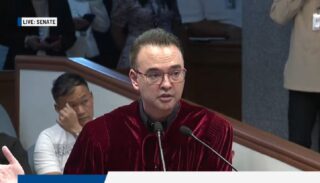NEW YORK–Nearly half of finance industry workers suspect competitors of cheating, while over a third in the highest pay bracket have witnessed wrongdoing first hand, according to a survey seen Thursday.
Key findings include that 23 percent believe their colleagues have engaged in unethical activity to gain an edge, nearly double the level in a 2012 survey, while almost one-fourth of those making more than $500,000 a year have felt pressure to compromise ethically.
The survey of 1,200 workers in the US and Britain said many believe crossing ethical barriers to be “part and parcel of succeeding in this highly competitive field.”
Jordan Thomas, an attorney at the law firm Labaton Sucharow who worked on the report with the University of Notre Dame, said Wednesday’s nearly $6 billion settlement between six huge banks and regulators for manipulating foreign exchange and interest rates was the latest evidence of the industry’s deep ethics problem.
“Making money at any costs is the goal, not doing the right thing and complying with the law,” said Thomas, who previously worked on the US Securities and Exchange Commission.
Bankers involved in the foreign exchange rigging conspiracy felt untroubled enough to dub themselves “The Cartel,” Thomas said.
“They were unashamed,” he said. The nickname “reflected that engaging in wrongdoing was not inconsistent with the culture.”
Thomas noted that 15 percent of employees surveyed said company leaders would ignore their suspicions if a top performer was believed to gain large profits from insider trading.
This share rose to 21 percent of those earning $500,000 or more.
The report said a key problem is the barriers that companies erect to block employees from reporting wrongdoing. Twenty-eight percent of the best-paid employees said company confidentiality policies barred them from reporting wrongdoing to government authorities.
Regulators have been cracking down on such gag orders when they find out about them.
The SEC on April 1 fined engineering firm KBR $130,000 for requiring workers to sign confidentiality orders saying they could be fired for discussing wrongdoing with outside authorities.
Thomas said the SEC’s approach has been “encouraging” but that it and other agencies need to do more to protect whistleblowers.


